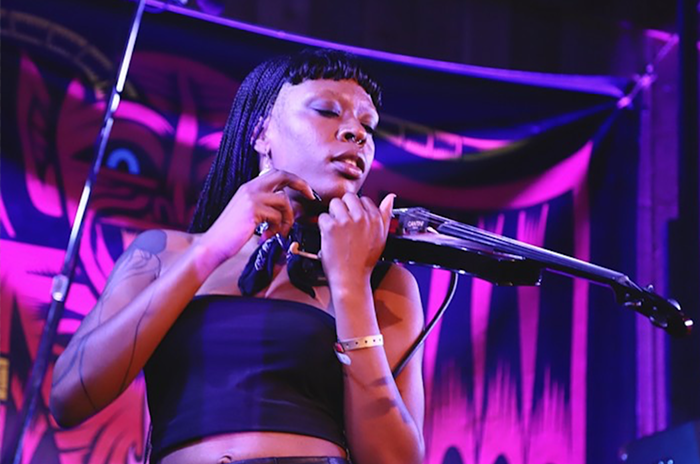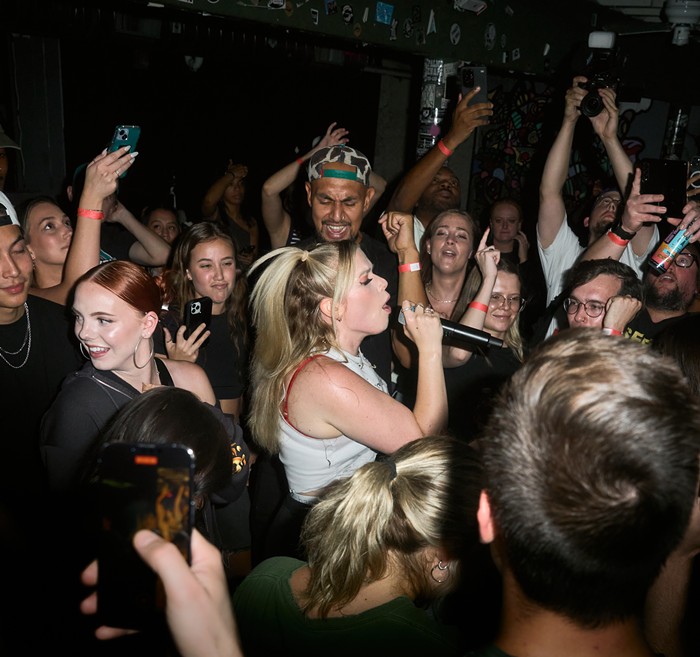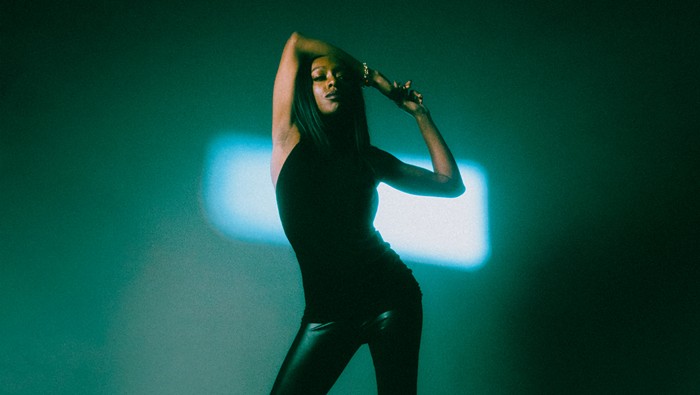"THE MUSIC OF JOY DIVISION was about the death of optimism, of youth," guitarist Bernard Sumner told Jon Savage in an essay printed in the booklet that accompanies Joy Division's Heart and Soul box set. From such bleak elements sprouted one of the most devoutly worshipped cult bands ever.
Joy Division made but two albums—1979's Unknown Pleasures and 1980's Closer—and a handful of EPs and singles, but their small output continues to resonate deeply with millions of fans worldwide. Singer Ian Curtis' suicide on the eve of Joy Division's first US tour in 1980 ended the band but launched the mythos, creating a fascinating penumbra of martyred doom and soulful torment around every blackened, driving rock song and harrowingly atmospheric slow-burner. Curtis' tragic death at age 23—brought on by fractured romantic relationships and complications from epilepsy—bestowed Joy Division's music with an immortal gravitas.
Now, Joy Division bassist Peter Hook—one of the greatest melody makers ever to strap on a four-string—has formed the Light, a group of younger cats, including his 21-year-old son, Jack, on bass (Hooky will be singing), to play Unknown Pleasures in its entirety, plus non-LP tracks like "Digital" and "No Love Lost." It's Hook's sincere way of honoring Curtis' memory on the 30th anniversary of his mate's death. We reached the master riff-monger by phone at his home in England.
MERCURY: When you were recording Unknown Pleasures, did you sense that you were creating a classic LP that would be revered decades later?
PETER HOOK: No. We were given the opportunity by Factory to record, and we just came in with the best songs we'd written so far. We hadn't done much recording before; we'd only recorded four songs or eight songs very quickly. We were very frightened, very nervous. [Producer] Martin Hannett was not the most communicative of people. He was like a mad genius in Back to the Future. The whole thing was quite unsettling. Making music and being in the group were the most important things in our lives. We literally threw our heart and soul into it and got on with it. All the accolades came later. Once Ian had died, the accolades didn't really mean a lot.
What were the general moods of Joy Division's members during the recording of Unknown Pleasures?
We were absolutely fantastic. We were all enthusiastic and very confident in the way that we felt. It was the best time, actually. By the time we got to Closer, we were obviously very preoccupied with Ian's illness. It really threw a shadow over the whole recording of Closer. Unknown Pleasures was Joy Division at their best. That's one of the nice things about playing it now: You look at the lyrics and appreciate how strong they are and how strong the band was. I don't think you get that feel from Closer. Closer had a much more melancholy, introspective feel.
What emotions do you feel when you play Unknown Pleasures songs now?
When I first started, I was terrified, because I knew that people were expecting a lot. And a lot of people were not very positive about what we were doing. So I was very wary of making sure that I got it right. So [we practiced] until I was happy with it.
What's the biggest misconception about Joy Division, even after all the movies, books, and box-set booklets?
I think people felt we were very miserable—which wasn't the case, because the music always made us very happy. People thought we were very doomy and gloomy. Joy Division's music always made me amazingly happy. It was one of those funny situations to be in, when people used to say, "Oh, it must be so miserable to be in that band." "Nah, fuck off, man!" [Laughs.]
Will the Light perform Pleasures as faithfully as possible to the original recorded version?
I was very careful to capture what Martin gave the songs and put back something that I thought was lacking. Martin made a wonderful soundscape, but I was a 21-year-old punk. All I liked to do was rip your head off [laughs kind of maniacally]. So what I've tried to do is find a combination between how Joy Division actually sounded and how Martin Hannett wanted us to sound. I realize how important this record is to a lot of people. And you know what? I've had no complaints. Anyone who's ever watched it has not had one complaint yet. It could be the first time, America [laughs].
I think Americans will really embrace it and love it.
All these people make me laugh who are accusing me of cashing in. Cashing in, 30 years after? That doesn't really equate. This is my way of celebrating what a fantastic person Ian was and what a fantastic band Joy Division were. [I want] people to make up their own minds and approach this tour with an open mind. Unknown Pleasures is the most important record I ever made. It really set off the whole of my career, so I'm not messing about with it. I'm deadly earnest and deadly serious about it.



















